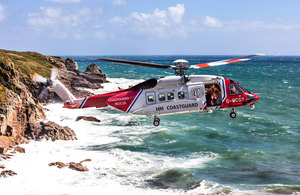Lord Mayor of the City of London pays virtual visit to Chile
The Lord Mayor of London, global ambassador for the UK’s financial and professional services industry, paid a virtual visit Chile on 9 and 10 March. The aim of of the visit was strengthening trade links with the City of London. William Russell, the Lord Mayor, met government and business leaders, regulators, and trade bodies in Santiago. This virtual visit focussed around collaboration on green finance, open banking, fintech and cyber security, as well as positioning UK strengthens in financial services and innovation.
On the first day of the visit, the Lord Mayor attended a roundtable with the Ministry of Finance, regulators, representatives of Chilean financial sector, and InBest –organisers of Chile Day. At the meeting, headed by the Chilean Minister of Finance Mr. Rodrigo Cerda, discussions where held about Chile’s approach on financial development. Other topics were sustainability and innovation, as well as opportunities for engagement in 2021, including at Chile Day.
William Russell also led discussions on challenges and opportunities in open banking regulation that Chile is designing. On the occasion, UK experts from the Open Banking Implementation Entity, and the companies Raidiam and Open Banking Delivery held discussions with key Chilean policy makers. They presented the UK implementation of open banking, its challenges and the importance of design. This is precisely where UK expertise, as in other jurisdictions, can help create a dynamic and safe ecosystem.
Another focus of the Lord Mayor’s visit promoting the UK market for Chilean fintechs interested in scaling up. The Lord Mayor also referred to the latest outcomes of the Kalifa Report, oriented to guide the future of the UK fintech ecosystem. Mr. Russell also participated in an activity on green finance organised by the British Chilean Chamber of Commerce. The webinar ‘Mobilising UK-Chile Net Zero Green Financial Systems’ included participants from the Chamber’s member companies. Also present were members of the Chamber’s finance and sustainability committees and financial sector actors, who shared views on how to successfully take part in the race to net zero 2050.
On Wednesday 10 March, William Russell participated in an event for pension funds organised by Aberdeen Standard. It focused on sustainability and how relevant it is for financial firms to incorporate climate risk to their investment decisions. Later that day the Lord Mayor led a discussion on cybersecurity for insurance firms, an event oriented to LATAC firms and organised by City of London.
About trade and investment relations UK-Chile
- UK and Chile partnership is strong and the UK-Chile Association Agreement has ensured that companies from both countries retain the preferential tariffs enjoyed under the previous EU-Chile agreement.
- The City of London has an excellent relationship with Chile, which has developed strongly in recent years.
- There are a wealth of bilateral trade and investment opportunities between the UK and Chile, with close to £2 billion of bilateral trade recorded last year.
- The UK is now pursuing its own independent trade policy. We have established a UK-Chile trade dialogue to take forward strategic collaboration and adapt bilateral trading arrangements to the reality of our countries.
- As from 2015, the Santiago Office of the Department for International Trade (DIT) has helped 29 Chilean companies to settle down in the UK, mainly in the tech and financial services sector. A high percentage of these have been scale-ups.
About the UK economy
- The UK is a strong economy and a great place to do business, ranking eighth globally in the World Bank’s Ease of Doing Business Index (2020). This is thanks to its flexible labour markets, high levels of employment and competitive environment – with high standards and dependable rule of law.
- The UK is recognised as a global leader on climate change action, including green finance and green growth promotion.
- The UK has the strongest Fintech ecosystem worldwide economy and the lowest tax rate in the G20. The UK fintech sector contributes £6.6 billion annually to the UK economy, and employs over 60,000 people across 1,600 companies.
- DIT in Latin America and the Caribbean has supported more than 250 companies in the region to invest more than £3 billion in the UK. These investments come from enterprises operating in a wide array of sectors such as technology, finance, food and drink, and chemicals.
Further information
For more information about the work of the British Embassy in Santiago, follow us on:

